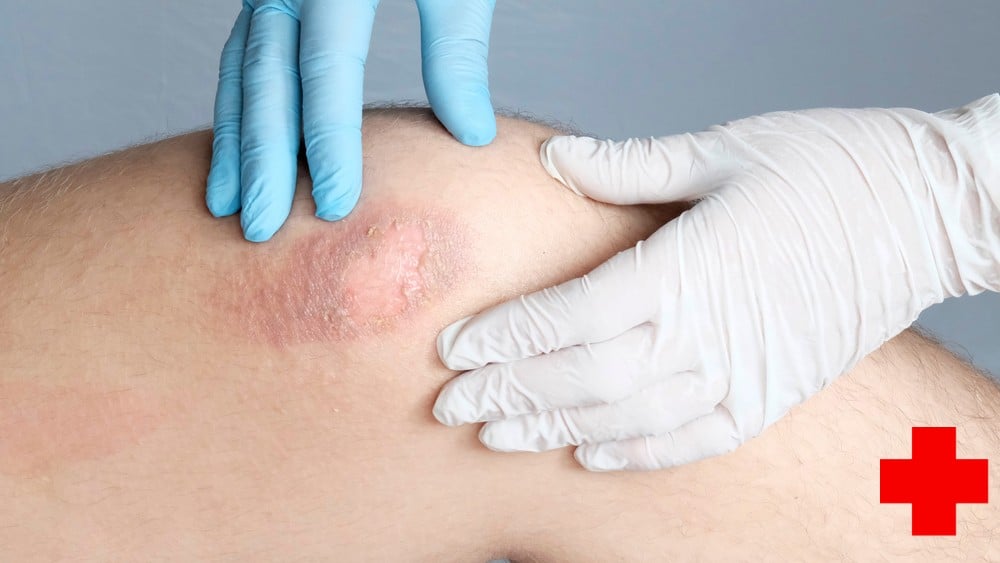Welcome to this complete manual on how to become a Hospice Nurse!
All you need to know about hospice nursing, including what it entails, salary expectations, and how to start the career is entailed within.
After reading this guide you will be able to make critical decisions in your hospice nursing career.
This article covers:
- Hospice Nurse Education
- Steps to becoming a Hospice Nurse
- Where you can work as a certified Hospice Nurse
Let’s start!
Introduction

Nurse Practitioners who work in hospices have a difficult job.
Unlike other Nurse Practitioners, their mission in the medical field does not entail saving lives.
While both are equally committed to patient care, the result is different.
A Hospice Nurse Practitioner collaborates with the hospice team to assist people through the end-of-life journey.
Their primary mission is to utilize their physical and emotional support to ensure patients receive dignity and respect.
Individuals who have settled on this career path speak highly of the nursing program and the experience of being part of a care team.
Hospice Nurses or caregivers provide acute clinical care and compassionate palliative care to patients.
A Hospice Nurse Practitioner is a very specialized role and not appropriate for every RN.
Consider what would happen if every patient you cared for died.
Being a Hospice Nurse Practitioner entails just that.
To provide excellent care in a hospice setting, these Nurses must have the correct mindset and coping abilities.
Hospice nursing education

The majority of the abilities and characteristics of a Hospice Nurse might reveal themselves over time, but still, they must meet the educational and experience requirements.
Hospice Nurses are Registered Nurses (RNs) with an ADN or BSN.
Their training is towards working with terminally ill patients.
Their work delivery is evaluated on their ability to respond swiftly to emergencies.
Studies for both the ADN and BSN degrees typically include nursing topics such as:
- Microbiology
- Basic anatomy
- Pharmacology
- Sociology
- Psychology
However, a BSN program is extensive and includes more advanced coursework.
BSN candidates will be taught additional topics such as:
- Nursing theory and management
- Leadership
- Public health
Clinical hours are mandatory for earning a nursing license.
Candidates can complete their clinical work in a simulation lab, hospital, community health clinic, etc.
This training can take place alongside registered nurses and covers learning fundamental procedures and more advanced skills.
Before a student can enroll for their licensure, they must complete 700 to 800 clinical hours as part of most BSN programs.
Steps on How to Become a Hospice Nurse

Step 1: Be a Registered Nurse
Prospective Hospice Nurses should start their careers by becoming Registered Nurses.
This starting point acts as a measure of their qualification for the job.
The majority of organizations mandate a Bachelor of Science in Nursing (BSN) which must be earned from a university or college with the required credential.
However, if four years seems like a long period for you, you should consider an Associate of Science in Nursing.
The bachelor’s degree has a course duration of two years or less and can be accomplished in most nursing schools and community colleges.
Whatever nursing degree you choose, make sure it includes a combination of classroom learning and clinical nursing practice to help you prepare for a nursing job and gain valuable occupational knowledge.
Other professionals may choose to devote an extra year to secure a Master of Science in Nursing (MSN), becoming increasingly popular among healthcare companies.
You must pass the National Council Licensing Exam for Registered Nurses NCLEX-RN exam after completing your degree.
The process starts by applying to the state where you want to work.
They’ll grant you an acceptance offer that lets you take the test.
The exam comprises multiple-choice, fill-in-the-blank, and ordered response questions.
Successful licensing is upon passing the exam.
Step 2: Experience
Nurses who complete and meet the educational requirements and want to earn their names in hospice organizations must first get some years under their belt.
You can gain the experience by working in an Emergency Department (ER), an Intensive Care Unit (ICU), geriatrics, or any other acute care setting.
These departments are considered high-paced environments that offer abundant experience and development opportunities for aspiring Hospice Nurses.
Your period in these settings will equip you with the technical skills necessary for use on hospice patients.
It is also the time to test your stress threshold.
In the end, you will create the coping mechanisms needed to deal with each patient’s inevitable death.
Step 3: Higher education
If your dream is to influence hospice care operations, you should consider a master’s degree in hospice and palliative nursing.
It allows you to partake in administrative and managerial roles.
The curriculum taught under the MSN program involves integral psychology and medical ethics knowledge.
On the other hand, Nurses can choose to specialize in areas like intensive care, triage, case management, or rehabilitation.
Your job title changes from Registered Nurse to Advanced Practice Nurse (APRN) when you earn your master’s degree in nursing.
Step 4: The Certification exam
Although not all employers demand a certification during the hiring process, earning one can help you prepare for Hospice Nurse positions and demonstrate your credentials.
Accreditation makes you stand out from your peers.
Successful certification is considered after one takes and passes the exam administered by the National Board for Certification of Hospice and Palliative Nurses Association.
The certification is subject to renewal every four years.
The following certifications come highly suggested for Registered Nurses working with hospice patients:
- Certified Hospital and Palliative Pediatric Nurse (CHPPN)
- Certified Hospice and Palliative Nurse (CHPN)
- Advanced Certified Hospice and Palliative Nurse (ACHPN)
Certified Hospice and Palliative Nurse (CHPN) is the most prevalent certification for Hospice Nurses.
However, Hospice Nurses who have advanced their education to the master’s degree level should consider the Advanced Certified Hospice and Palliative Nurse (ACHPN).
It is only admissible to persons with Certified Nurse Specialists (CNS) or Nurse Practitioners (NP) degrees.
The Certified Hospice and Palliative Pediatric Nurse credential is comparable to the CPHN: however, it focuses on children.
Continuing Education for Hospice Nurses

The Hospice and Palliative Accrual mandates recertification for all Certified Hospice and Palliative Nurses.
The process is known as the Recertification procedure and is done every four years, with the year of certification being the initial period.
However, for one to qualify for the recertification process, one must meet crucial requirements.
These include clinical hours and contact hours to participate in various continuing education events.
The Hospice Nurse recertification procedure entails a unique requirement.
It is referred to as the Situational Judgment Exercise (SJE).
Nurses will only be recertified if they successfully prove their capability of coping with the daily real-world clinical issues faced by Hospice Nurses through the SJE.
To maintain their nursing licensure, Hospice Nurses must ensure they have the recommended CEUs, regardless of certification.
The criteria for continuing education for licensure differ from one state to another.
All licenses and renewals are also subject to monetary fees and other state-specific criteria.
Where you can work as a Certified Hospice Nurse.
Hospital liaison
The primary role of hospital liaisons is to develop strong professional relationships between hospice facilities and their partnered hospitals.
Some hospice care units are independent organizations.
These professionals forge collaborations with hospitals, and in turn, the hospitals offer the best possible care to their patients.
Additional roles for hospital liaisons include acting as communication channels for all hospice cases with the hospital personnel, coordinating arriving patients, etc.
They are also the ones who determine the degree of care required by each hospice patient.
Case Manager
The most crucial task involving hospice patients is the care, and the most critical personnel for delivering that are Hospice Nurses working as Case Managers.
They design patient care programs.
They are the person in charge of training visit Nurses and other medical personnel on how to help each patient.
The roles of Case Managers extend to their family members where they strike a collaboration between them and their families to figure out what kind of care their loved ones need and how hospice might assist them.
It is also the responsibility of Case Managers to assist family members in contacting spiritual leaders.
Psychologists might also be needed, depending on the impact that death might have on a family member.
Triage Nurse
This type of Nurse is always on the call, required to respond quickly to a patient’s room or house in case of an emergency.
Other key responsibilities involve analyzing the situation promptly and determining whether the patient requires additional assistance from other specialists.
Triage Nurses may also work hand-in-hand with families to assist them to evade emergencies in the future.
Dietitian
Hospice patients need energy and utmost comfort, and the best way to achieve that is with their diets.
Hospice Nurses working as dietitians formulate their diets depending on a patient’s treatment plan together with any prescribed medicine.
They ensure that the foods or meals enhance the program while not interfering with the treatment.
Admissions Nurse
These professionals are the first personnel a hospice patient will encounter once they are admitted to the hospice care facilities.
Their assistance involves consulting with Physicians about the patient’s current condition and assessing their immediate medical needs.
They also engage the patient’s families and walk them through the hospice process to better prepare them for the future.
Hospice Nurse Annual Salary and Job Outlook

The pay scale for Hospice Nurses varies depending on the city or state they work in, how many years of experience, their level of education, and if they have any certifications.
The US Bureau of Labor Statistics (BLS) estimated that the median compensation for Registered Nurses is approximately 75,000 annually.
However, your Hospice Nurse salary should be near the estimated amount depending on your unique situation.
In addition to the ongoing national Nurse shortage, the usage and need for hospice care have increased dramatically in the United States.
Nurses contemplating a career in hospice care should be assured of job security.
For the first time since the early twentieth century, statistics show that more Americans prefer dying at home.
According to reports, more than half of Medicare patients who died in 2018 did so while in hospice.
According to reports, 10,000 people in the United States become eligible for Medicare every day, which many predict will continue until 2029.
Much of this is due to the population’s rising aging and a growing acceptance of palliative care.
Conclusion

It’s difficult to imagine who will look after you or your family if you’re terminally sick and wish to leave the hospital.
However, as patients approach the end of their life, there is still a great deal of medical care that needs to be provided.
Hospice Nurses can help with this.
Hospice care necessitates a high level of compassion in delivering quality of life to terminally ill patients.
It also requires the ability of Nurses to detach and separate the emotional aspects of their work from their personal life.
Hospice Nurses make many choices independently, and they manage their cases.
This specialty may not be for you if you don’t feel at ease in a role with minimal supervision or assistance.
FAQs

What are the duties of a Hospice Nurse?
Hospice Nurses are Registered Nurses who provide care to patients who are nearing the end of their lives. They create personalized treatment plans, track progress, and offer direction and support to patients and families. The provision of hospice care is done in private patients’ homes, residential care institutions, nursing homes, etc.
What are the benefits and drawbacks of becoming a Hospice Nurse?
Those who serve as Hospice Nurses say it’s an emotionally satisfying experience. The satisfaction is drawn from the ability to soothe and support people when they’re in the most need. However, they also admit that there’s a lot of grief involved and that the job can be emotionally draining.
How long does it take to become a Hospice Nurse?
The total timeline expected for becoming a Hospice Nurse involves earning an ADN, BSN, or MSN degree which will take one 2-to 5 years. You must also pass the NCLEX-RN exam. One of the crucial requirements is 3 years experience of working in an acute care setting.
How many days a week does a Hospice Nurse work?
Hospice Nurses are needed 24 hours a day, seven days a week. Hospice Nurses typically perform shifts ranging from 8 to 12 hours. Some Hospice Nurses will only work night hours, while others will work a variety of shifts throughout the week.
How to be a good Hospice Nurse?
Before you can launch a career as a Hospice Nurse ensure you possess all of the skills needed for any acute care nursing position. You should also cultivate your personal characteristics of honesty, patience, and empathy. The job necessitates critical thinking, organizational skills, and meticulous attention to detail.
What do you need to know to become a Hospice Nurse?
Hospice nursing begins with the completion of an ADN or a Bachelor of Science in Nursing (BSN). After meeting the educational requirements they must take and pass the National Council Licensure Examination (NCLEX-RN). After a few years of clinical experience in an acute care setting, next is the Palliative Nurses Certification Exam.
What experience do you need to become a Hospice Nurse?
Acute care. Most hospice organizations mandate at least one to two years of nursing experience. If you want to work as a Registered Nurse at a hospice facility, search for acute experience in medical surgery, intensive care, geriatrics, operating room, etc. Those departments provide aspiring Hospice Nurses with a wealth of experience.









